Understanding fractions Normal Worksheets for Ages 4-9
17 filtered results
-
From - To
Discover our "Understanding Fractions Normal Worksheets" designed for children aged 4-9! These engaging, printable worksheets make learning fractions fun and accessible. Tailored to enhance early math skills, our resources help young learners grasp fundamental concepts, including identifying fractions, comparing sizes, and visualizing parts of a whole. Each worksheet promotes hands-on practice, encouraging students to explore fractions through colorful illustrations and interactive problems. Perfect for home or classroom use, these worksheets cater to various learning styles, ensuring every child gains confidence in their mathematical abilities. Start your child's learning journey today with these comprehensive and user-friendly fraction worksheets!
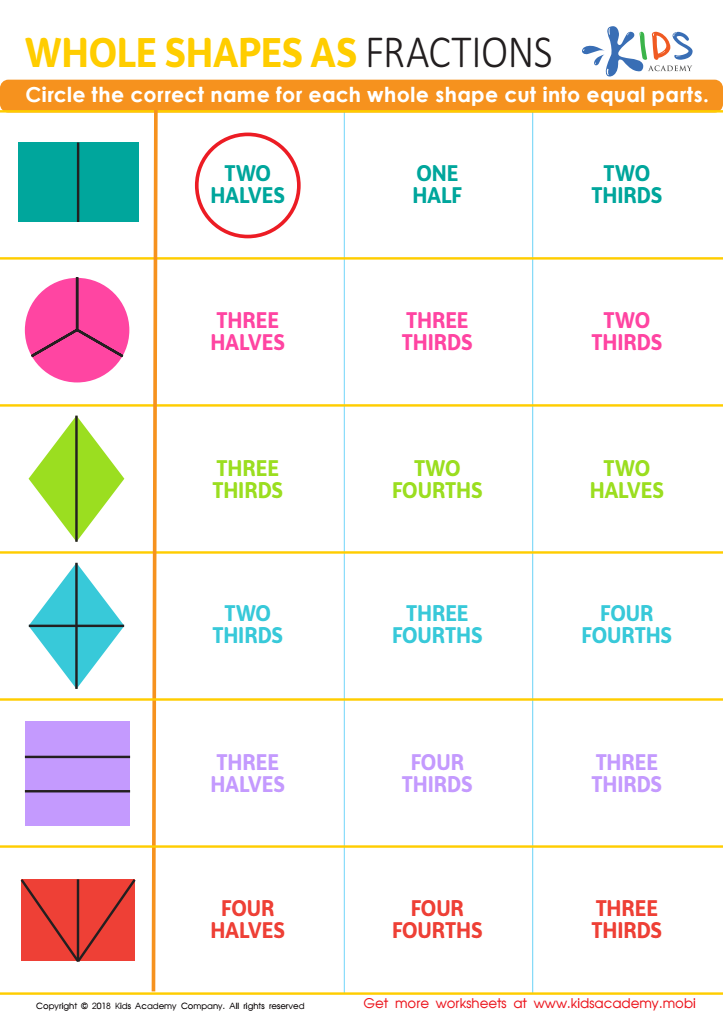

Whole Shapes as Fractions Worksheet
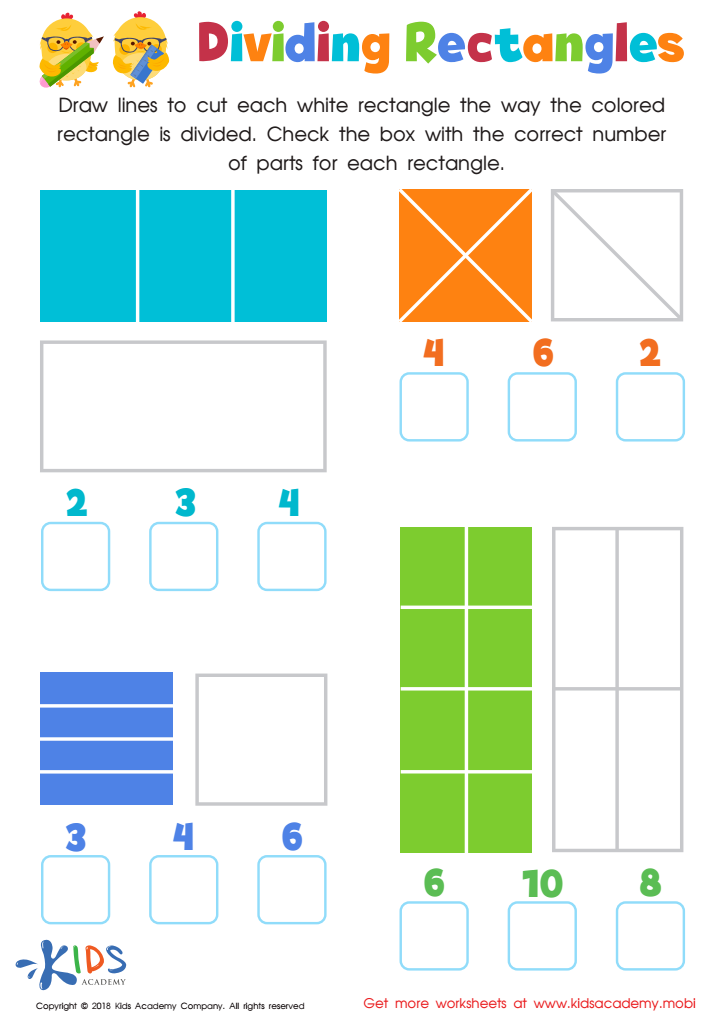

Dividing Rectangles Worksheet
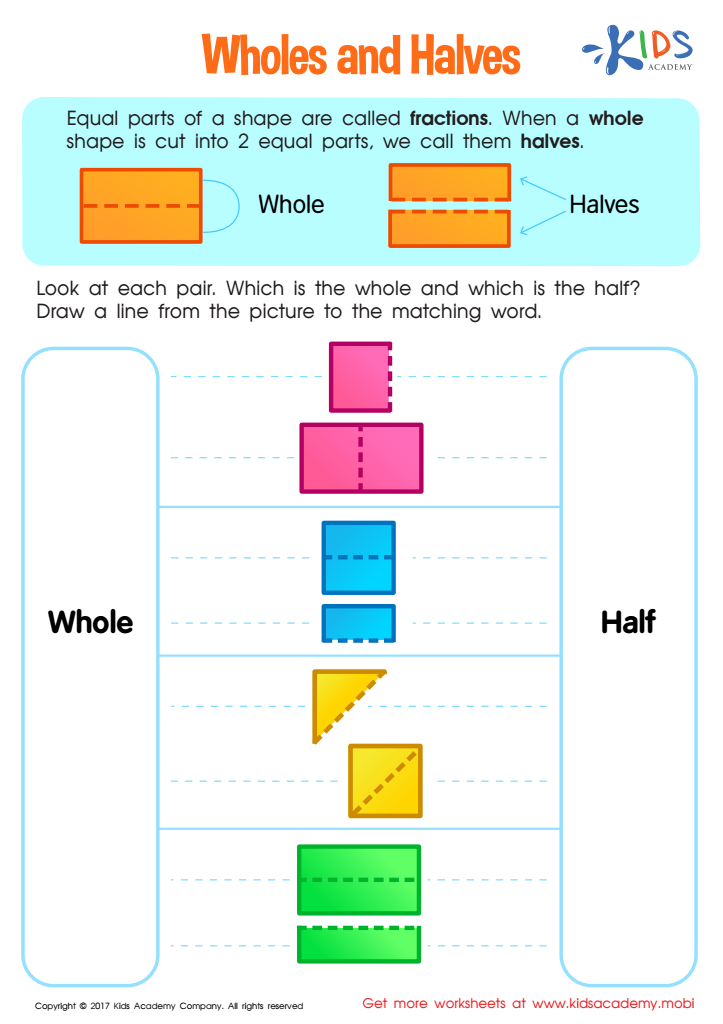

Wholes and Halves Worksheet
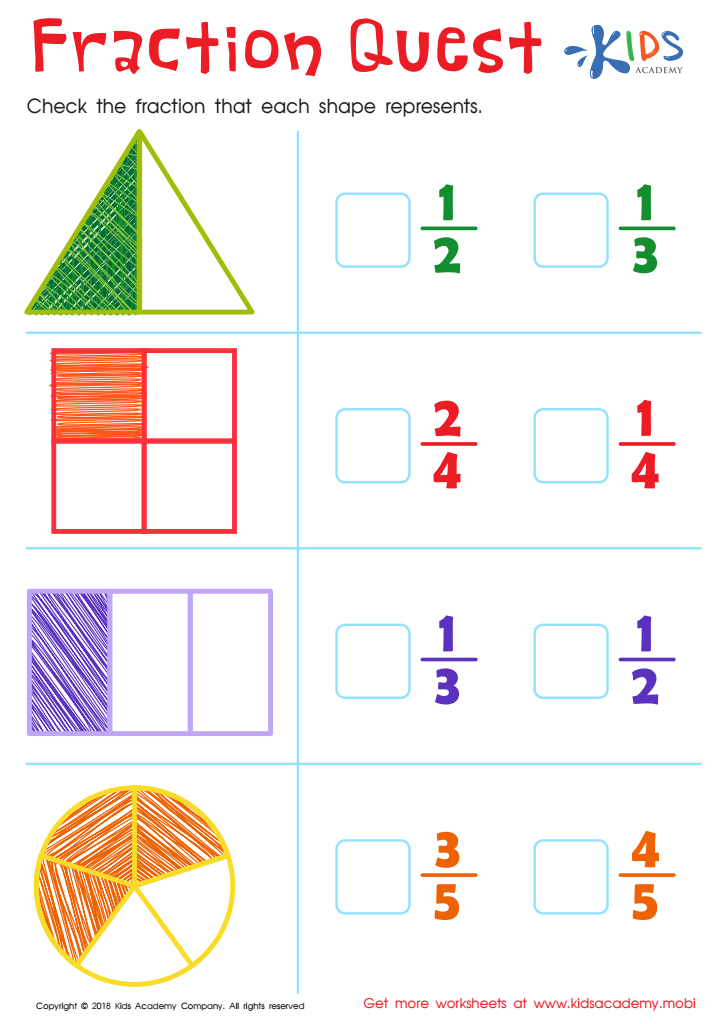

Fraction Quest Worksheet
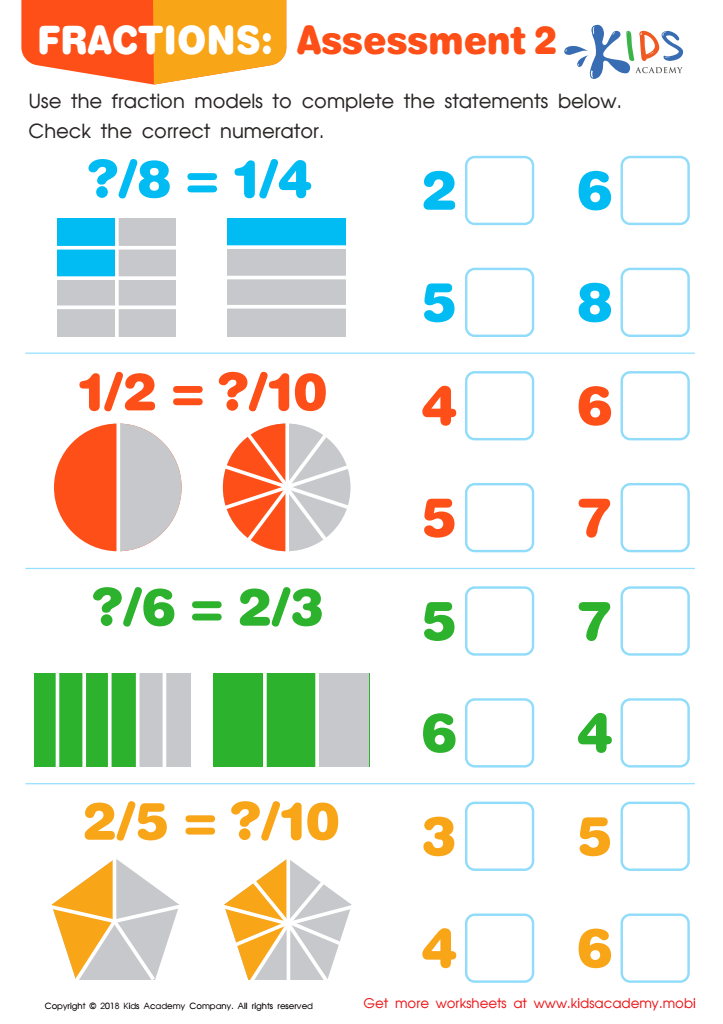

Fractions: Assessment 2 Worksheet
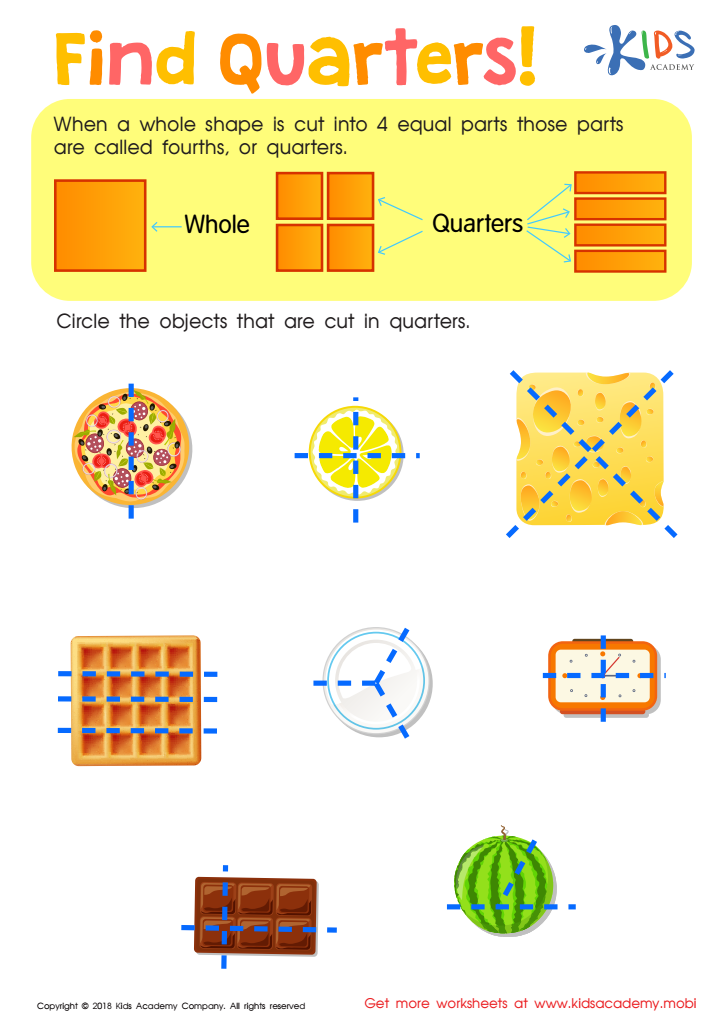

Find Quarters Worksheet
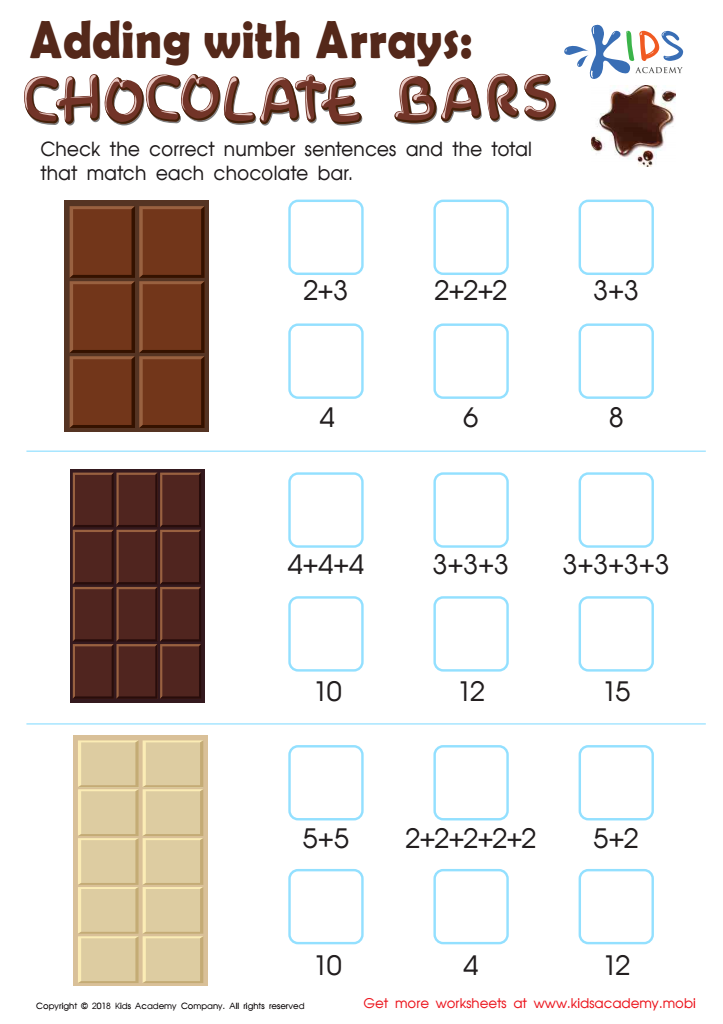

Adding with Arrays: Chocolate Bars Worksheet
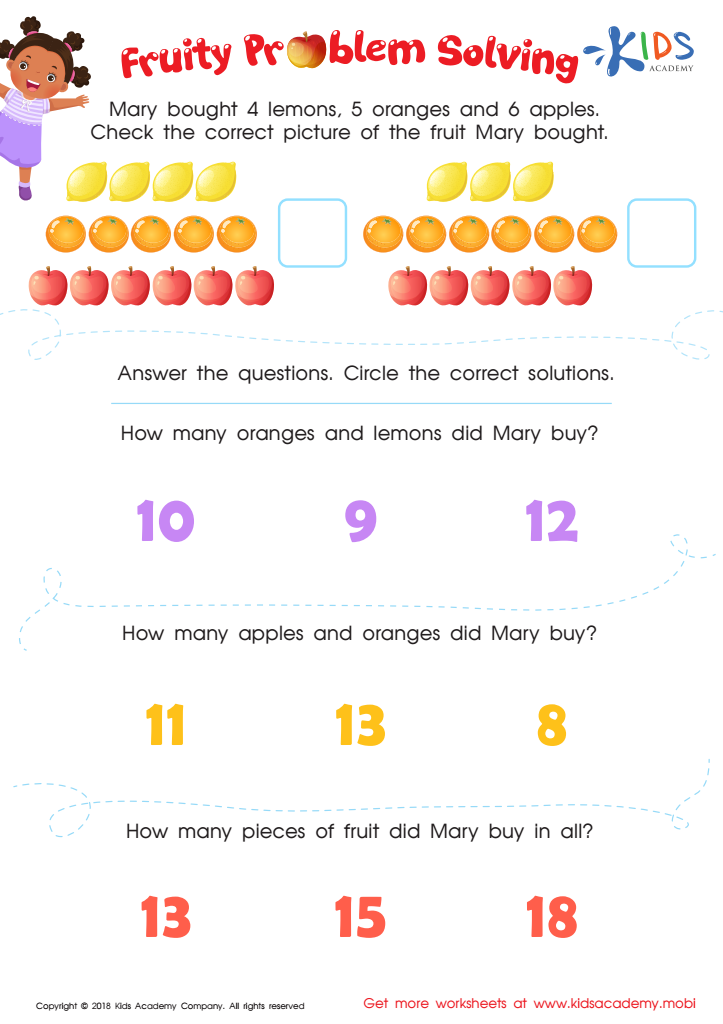

Fruity Problem Solving Worksheet
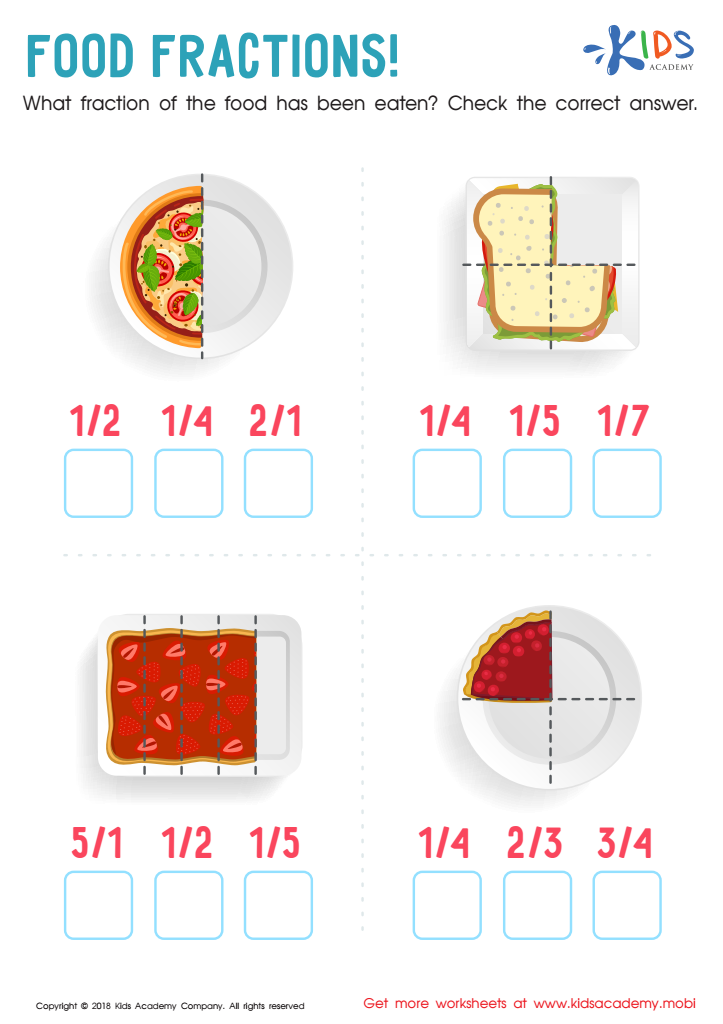

Food Fractions Worksheet
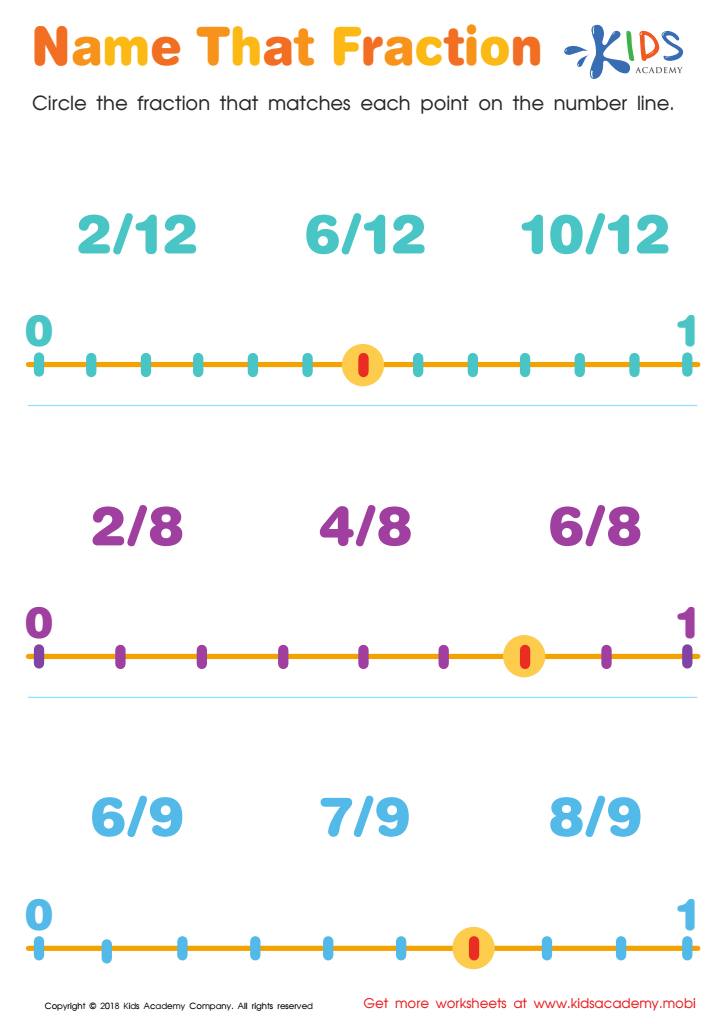

Name That Fraction Worksheet
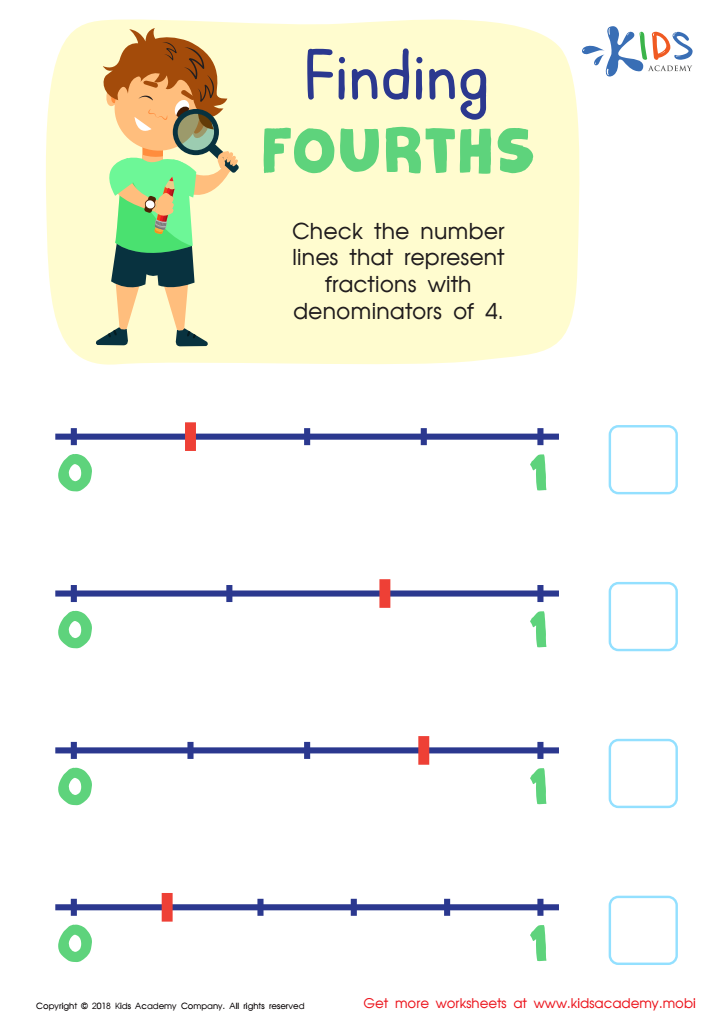

Finding Fourths Worksheet
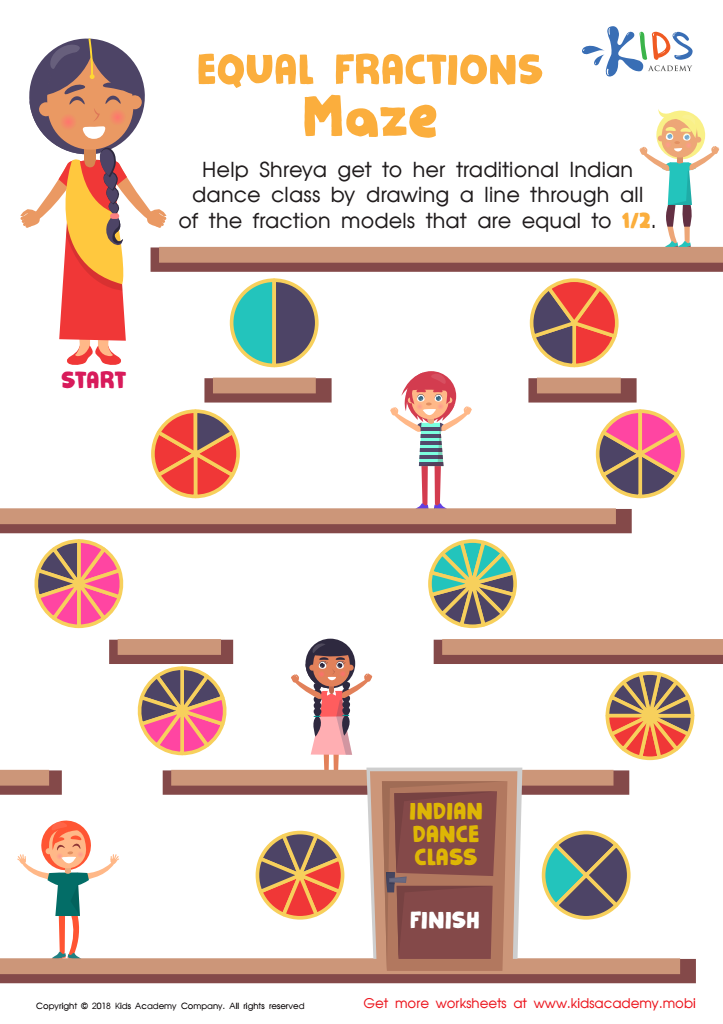

Equal Fractions Maze Worksheet
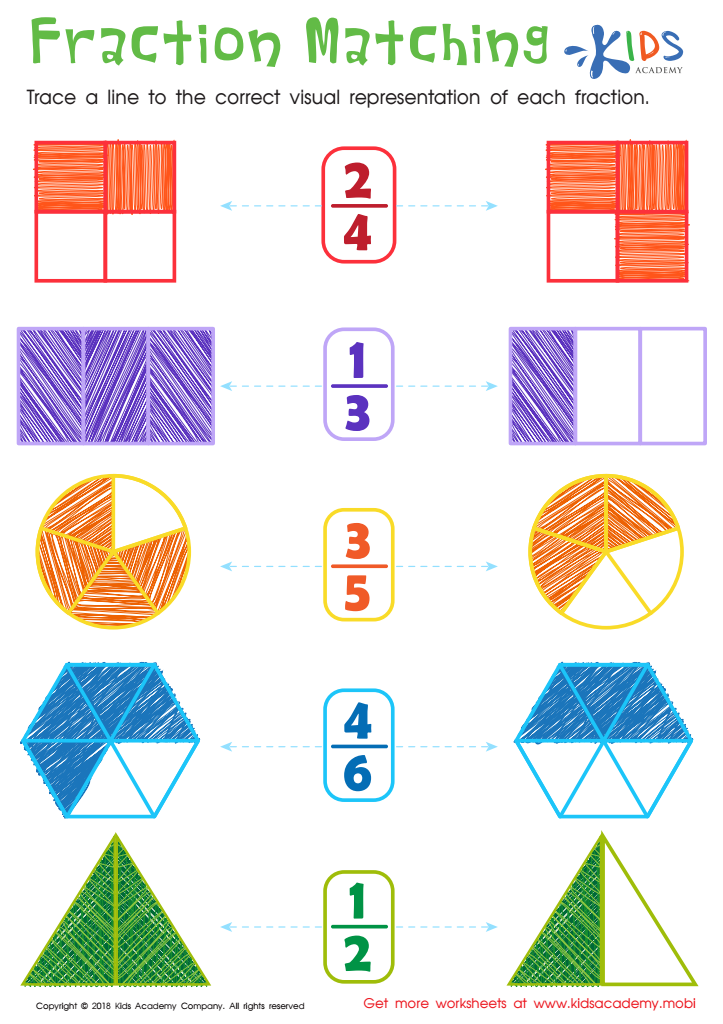

Fraction Matching Worksheet
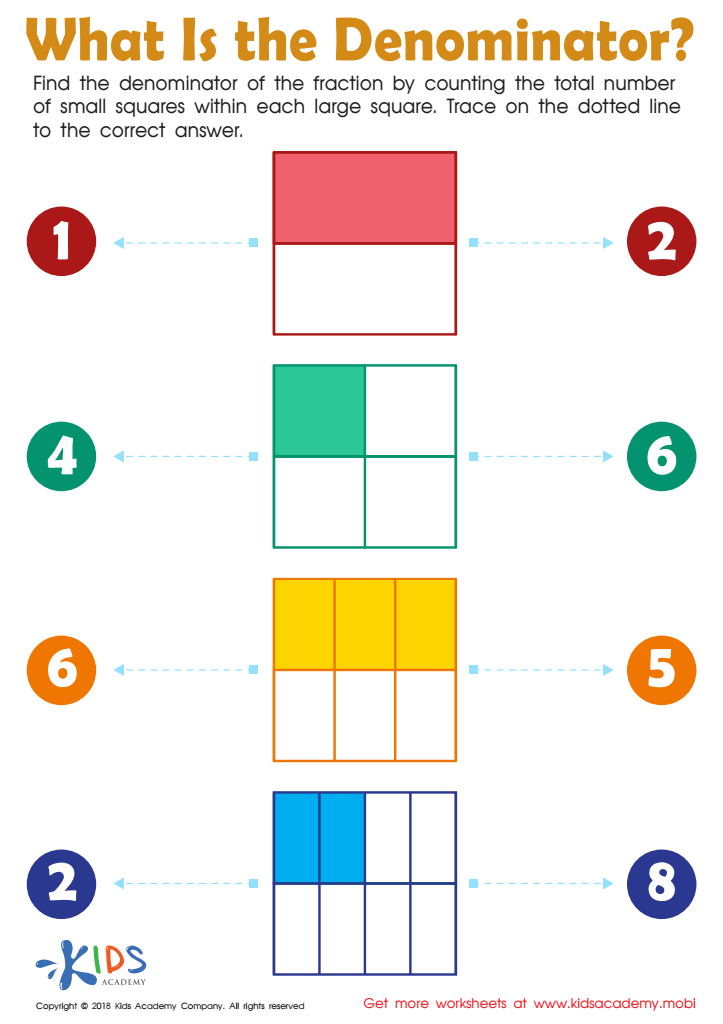

What Is the Denominator? Worksheet
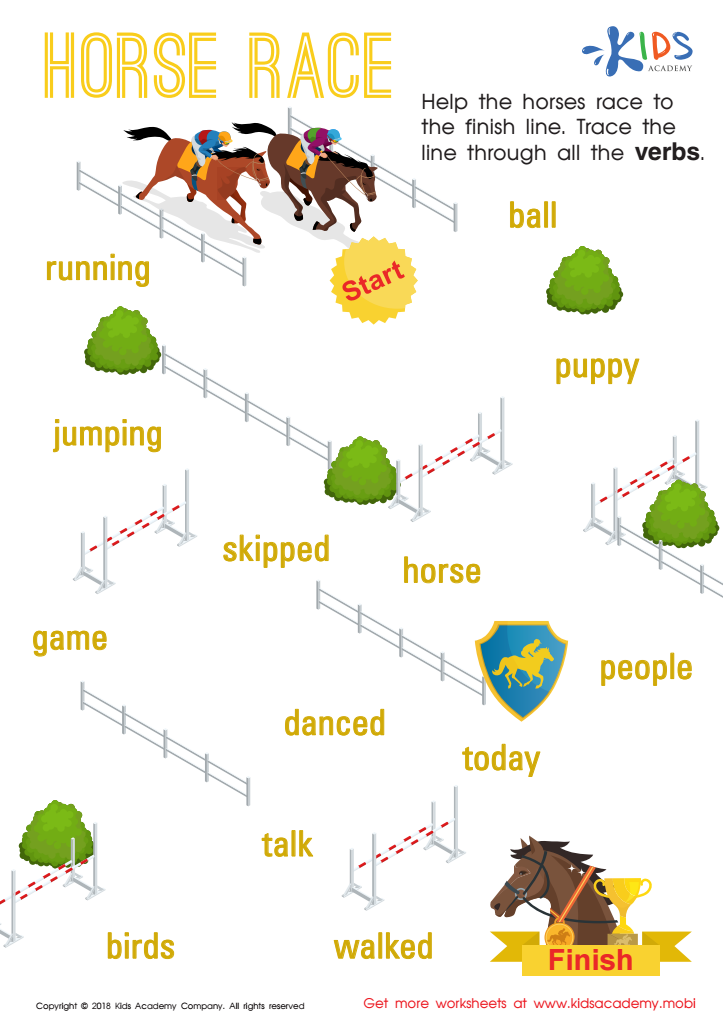

Horse Race Worksheet
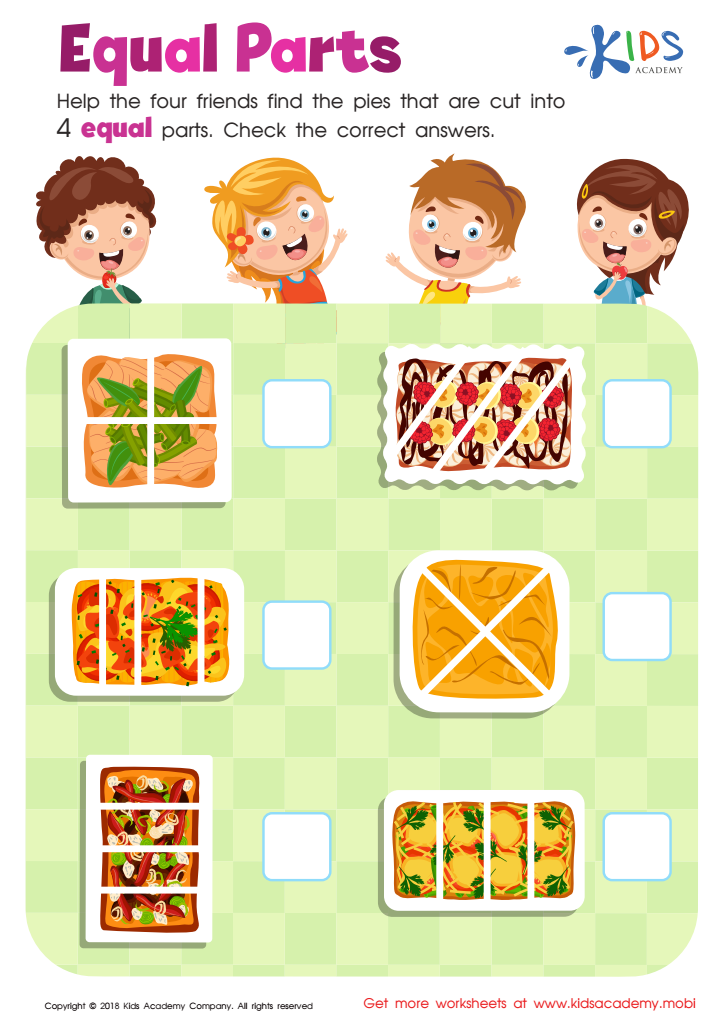

Equal Parts: Food Worksheet
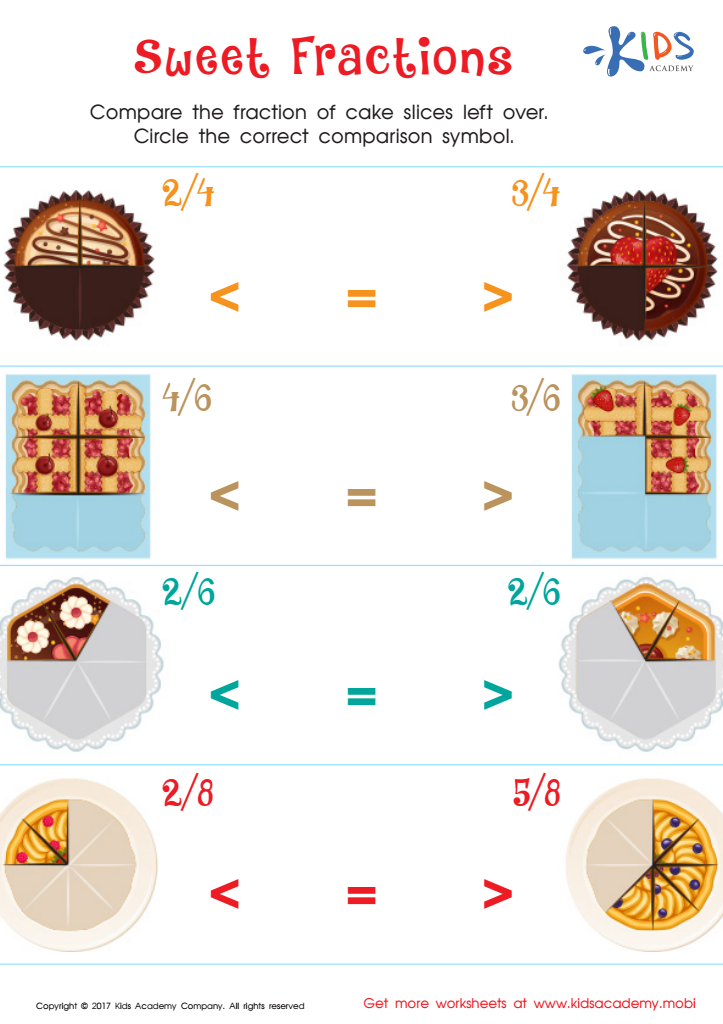

Compare Fractions Worksheet
Understanding fractions is crucial for the cognitive and mathematical development of children aged 4-9, forming a foundational skill that influences their future learning. At this age, children begin to grasp basic mathematical concepts, and introducing fractions fosters critical thinking and problem-solving skills. Recognizing fractions helps children understand the concept of parts and wholes, which is essential for everyday situations—like sharing food or dividing toys.
Furthermore, foundational knowledge of fractions enhances children's ability to comprehend more complex mathematical operations later on. It serves as a bridge to topics such as division, proportions, and ratios, which are all based on fraction concepts. Early exposure to fractions can build confidence in math skills, reducing anxiety around numbers in later grades.
For parents and teachers, engaging with fractions not only aids in children's academic growth but also encourages a collaborative learning environment. By using practical examples, games, and hands-on activities, they can make fractional concepts interesting and relatable. This interaction not only enriches mathematical understanding but also strengthens the parent-child or teacher-student bond through shared learning experiences. In summary, caring about fractions at this early stage lays the groundwork for future successes in mathematics and everyday life.
 Assign to My Students
Assign to My Students




















